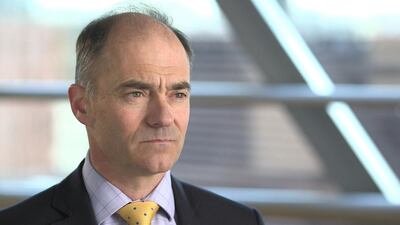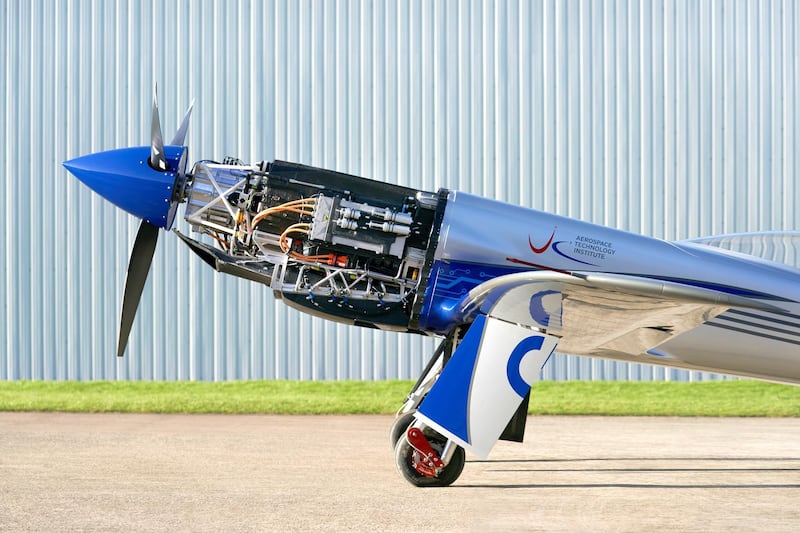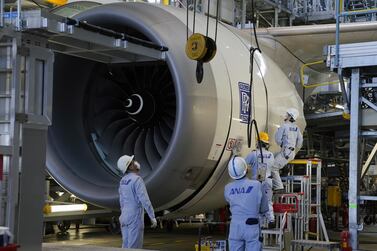Rolls-Royce is pinning its net-zero carbon ambitions on “smashing” the electric aircraft speed record, its chief executive said on Monday.
Warren East said the stunt was a critical "marketing ploy to win hearts and minds" in the aviation industry that electric flight is possible as the UK jet engine manufacturer aims to produce net-zero carbon emissions in its operations by 2030 and help lead the sector to net zero by 2050.
Electric and hybrid aircraft for shorter distance travel “won’t come from one company on its own", Mr East said. "This will come from a massive industry that must reinvent itself over the coming decades."
After an audit of its carbon footprint in the year since signing up to the UN's Race to Zero campaign, Mr East said Rolls-Royce must rely on others if it is to realise its own net-zero goals.
The company found that its own carbon emissions from daily operations and that of its supply chain to manufacture parts accounted for less than 3 per cent of its carbon output. It is the 97 per cent its customers produce from powering Rolls-Royce engines, used in planes, boats and data centres worldwide that it must urgently address.
Signing up to the UN pact a year ago "gets us on the hook to really doing something about net zero", Mr East said, despite the company nearly going bust as a result of the pandemic.
Rolls-Royce's aviation business model relies on charging airlines for the number of hours its engines fly and it suffered hugely as travel ground to a halt.
Mr East said “we had to go to our shareholders cap in hand to beg for more money just to survive” the pandemic.

Rolls-Royce reported a pre-tax loss of $5.62 billion last year as global travel was grounded, compared to a 2019 profit of $821.6 million.
But Mr East, who was speaking from the CogX conference in London on Monday, is optimistic about the outlook of demand. He said he expects air travel – for both passengers and freight – to return to pre-pandemic levels.
While Mr East seeks recovery, Rolls-Royce is aiming to put the designed and assembled Spirit of Innovation aircraft in the sky to break the all-electric speed record. The twin-propeller plane is targeting a speed of above 483kph, beating the current record of 338kph set by Siemens in 2017.
The 6,000 cells in the battery are “packaged for maximum lightness and thermal protection”, the company says on its website, with an advanced cooling system that can withstand the extreme temperatures and high-current demands during flight.
A single charge should fly the plane and a pilot 322 kilometres, or from London to Paris in about the same time as a combustion engine-powered aircraft.
The batteries powering Spirit of Innovation are "very similar" to what urban air taxis may someday require, meaning there are potential commercial applications for the project as well.
In March, the company said Spirit of Innovation successfully taxied, an important test of the aircraft's propulsion system ahead of actual flight-testing.
Rolls-Royce said it aimed to have the craft in the air by spring but Mr East declined to set a specific timeline – he said only "soon".








